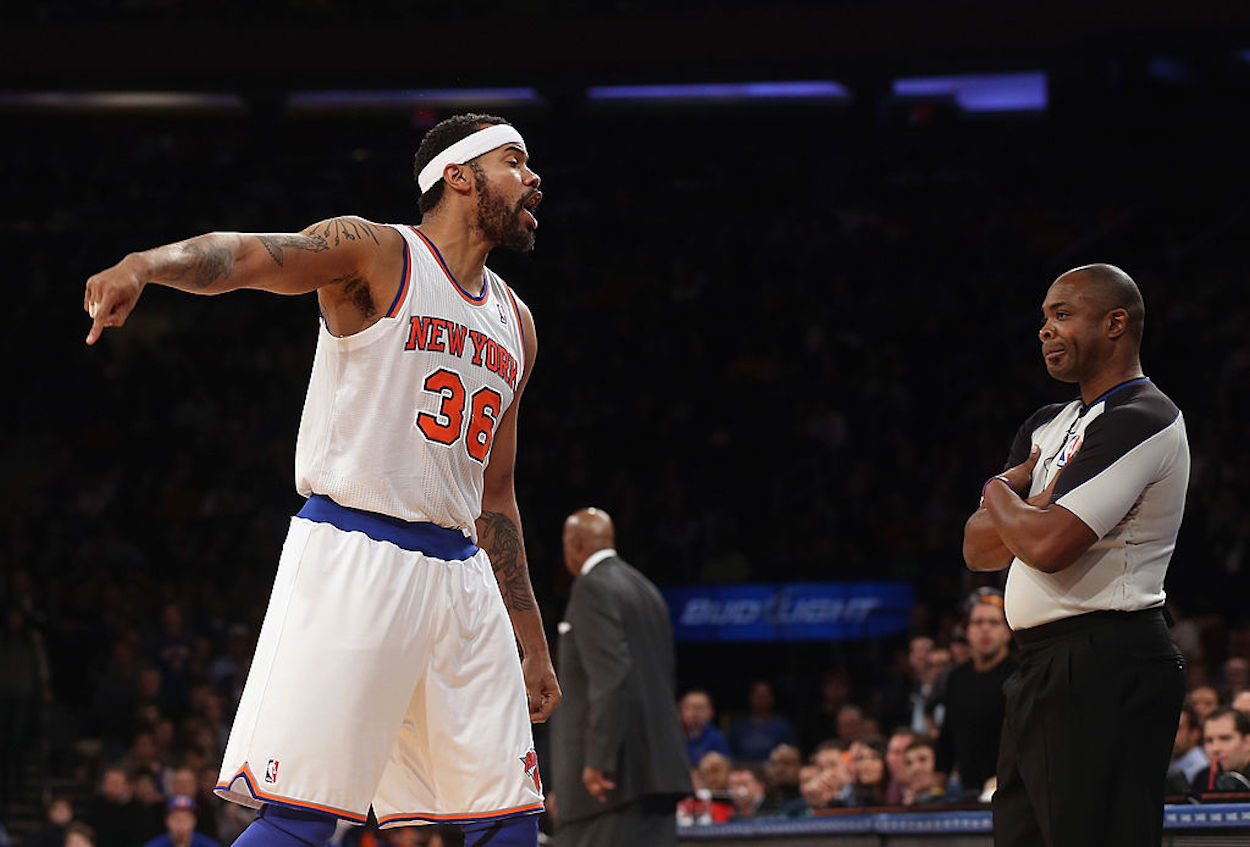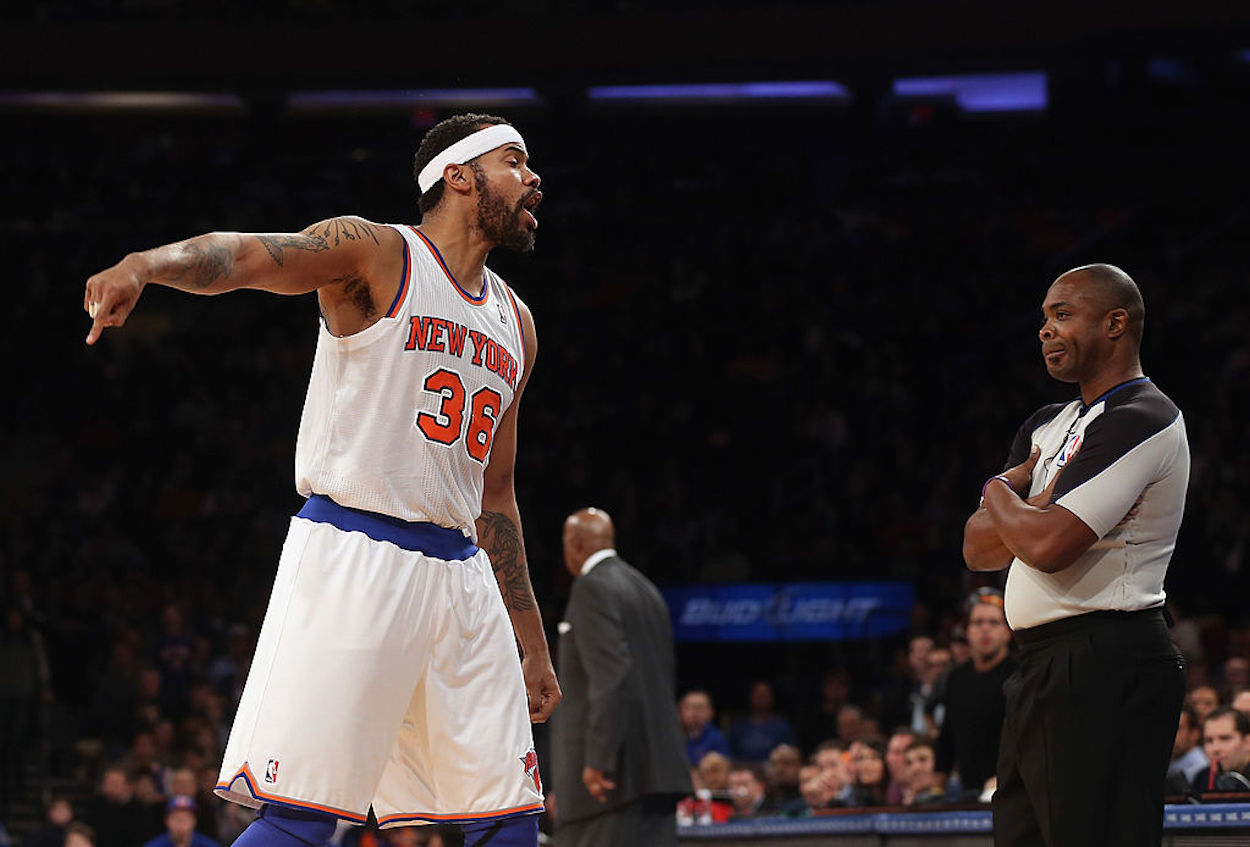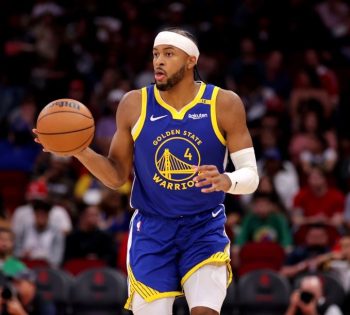NBA
Rasheed Wallace Took ‘Ball Don’t Lie’ From the Streets of Philadelphia and Made It Part of the NBA Landscape

If you’re a long-time sports fan, you’ll know how certain phrases can transcend the game and become part of popular culture. Take Herman Edwards’ “You play to win the game” or Dennis Green’s “They are who we thought they were.” While those both hail from the gridiron, NBA players are capable of producing their own iconic lines. Just consider “Ball don’t lie.”
While that quote has taken on a life of its own, everything started with one man: Rasheed Wallace. Let’s take a trip back in time and look at how a single moment of frustration grew into a part of NBA culture.
What does ‘Ball don’t lie’ actually mean?

Before going any further, let’s define the main term in question. If we’re going to talk about “Ball don’t lie,” we have to establish a consistent definition.
At the most basic level, the phrase means that the ball is basketball’s ultimate arbiter of justice. While the referees can make mistakes or even be deceived by a cunning opponent, the ball is immune to all of that. It knows what really happened and can react accordingly.
Does that sound a little wacky, especially since we’re talking about the ball as if it’s a sentient being? To make things clearer, let’s create an example.
Let’s say that there’s a controversial block/charge call, and the defender is 100% sure his feet were set before the contact was made. The referee, however, is less convinced and whistles for a shooting foul.
If the offensive player were to miss both free throws, the defender could feel vindicated and claim that “ball don’t lie.” He didn’t commit a foul, the ball agreed, and the scoreline didn’t change.
Where did Rasheed Wallace get ‘Ball don’t lie’ from?
As mentioned above, Rasheed Wallace helped bring “Ball don’t lie” into popular culture by shouting it during NBA games. The former forward, however, doesn’t get the credit for creating the phrase.
All the Smoke shared an Instagram clip of the Philadelphia native explaining the origins of “Ball don’t lie.” As you might expect, Wallace took it from the trash-talking culture of streetball.
“That came from the city of Philly,” he explained. “You know, just s***-talking in the street. You know, growing up, you hear different little things, same phrase like you go to the hole, and you get fouled. You say what? ‘And one.’ Or ‘You can’t guard me.’ Whatever the case may be. So that’s all it is. It’s just street talk.”
In the TNT segment embedded above, though, Wallace told a different story.
“To be honest, it just came to my head in a game,” he told Kevin Garnett. “You know, you know how my temper was when I was playing. And I always had a thing with the refs. So, you know, it just so happened I felt as though one ref called a BS call on me. And so the guy went to the line, it was nothing personal against him. He went to the line, and he shot that first one, and it [bounced off the rim]. And it just came out. ‘Ball don’t lie.'”
No matter the origin story, though, the line is now part of popular culture.
Why is ‘Ball don’t lie’ so famous?
When you’re talking about fame and why something resonates in popular culture, it’s necessary to paint with somewhat of a broad brush. I’m not inside everyone’s head to pinpoint the exact reasons why “ball don’t lie” caught on, but I can speculate about a few possible throughlines.
First, as Wallace said, most sports fans can understand a bit of casual trash talk. Whether you’ve said, “Ball don’t lie” during a game or not, you can probably relate to and understand Wallace shouting it on the NBA floor. That level of commonality can’t be overlooked.
Secondly, the forward had a knack for stealing the spotlight, even if he didn’t do it in the most ideal way. One of his most famous “Ball don’t lie” moments came in 2012. Wallace was whistled for a technical foul, and after the opposing team missed the free throw, he shouted his signature line. That earned him a second T and an ejection after less than two minutes of action.
Even if those sorts of moments will drive coaches up the wall, they stick in fans’ collective memories.
Finally, and on a similar note, there was just something relatable about Rasheed Wallace yelling, “Ball don’t lie.” Even though social media theoretically makes professional athletes more accessible than ever before, many players only present themselves through perfectly maintained facades. When we’d hear the forward chirp from the floor, though, he felt real. The game wasn’t always pretty or perfect, but Wallace seemed like a real person playing with genuine effort.
Combine all of that, and you’ve got a quote that lives on, even after the man himself retired.
The phrase now stretches across the sporting world
No matter why “Ball don’t lie” has become a part of popular culture, the phrase has transcended basketball to touch the entire sporting world. From NFL interceptions to MLB home runs, the line appears on social media whenever a controversial call is followed by a play that appears to restore karmic justice.
One of the most striking examples came on the NCAA gridiron during the 2013 Outback Bowl. While it appeared that South Carolina had gotten a big fourth-down stop, officials awarded Michigan a generous first down. On the next play, however, Jadeveon Clowney burst into the backfield and forced a fumble. The Gamecocks recovered the ball, restoring balance to the universe before going on to win the game.
More than a decade later, that play still looms large.
As every sports fan can confirm, some calls will eventually go against your favorite team. That reality is both frustrating and universal, which helps explain the appeal of “Ball don’t lie.” Sometimes, all you can hope is that justice will prevail, even if an intimate object has to step in and help.











